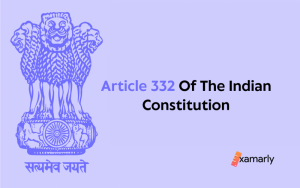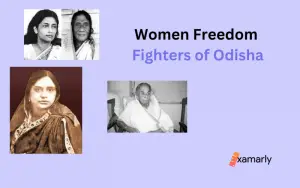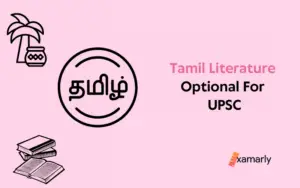“Rule of the people” is what democracy means. The word “democracy” is derived from the Greek word “demokratia,” which was coined in the middle of the 5th century BCE to characterize the political systems that were in place in several Greek city-states at the age, most significantly Athens.
This article will connect you with the Democratic meaning in Indian Constitution. Democratic is a keyword used in the Preamble of Indian Constitution.
Here you will get an overview of the democratic article in the Indian constitution’s preamble, including positive aspects, downsides, and distinguishing traits.
What Is A Preamble?
“WE, THE PEOPLE OF INDIA, having solemnly resolved to constitute India into a SOVEREIGN SOCIALIST SECULAR DEMOCRATIC REPUBLIC and to secure to all its citizens:
JUSTICE, social, economic, and political;
LIBERTY of thought, expression, belief, faith, and worship;
EQUALITY of status and of opportunity;
and to promote among them all
FRATERNITY assuring the dignity of the individual and the unity and integrity of the Nation;
IN OUR CONSTITUENT ASSEMBLY this twenty-sixth day of November, 1949, DO HEREBY ADOPT, ENACT AND GIVE TO OURSELVES THIS CONSTITUTION”
This is the Preamble of India which explains the purpose of its founders, the background to its founding, and the fundamental ideals and values of the country. Democratic is one of the keywords that are part of the Preamble.
Democratic Meaning In Indian Constitution
India became a democratic nation after its constitution was formed in 1950, and it has upheld its democracy ever since. Democracy in simple words means that people are free to express their opinions without any pressure. Basically, it means “rule of people”.
To establish a government of/for the people, at least five essential questions must be settled before the start, with two more almost certain to be raised if a democratic republic is to be maintained
The term Democracy in the Preamble of India means that the form of government adopted by the Indian Constitution is based on the will of the people as expressed in elections. is used to give political, economic, and social democracy, among other things.
The characteristics of Indian democracy include accountable representative governments, universal adult suffrage, one vote, one value, an unrestrained judiciary, etc.
Positive Aspects
Democracy holds some positive aspects which give people of the country the authority to express themselves as they wish. These aspects are-
- Democracy gives the right to freedom of speech, disagreement, and criticism of the current government.
- People are given powers to replace undesirable governments via constitutional means.
- People’s fundamental rights are limited by their responsibilities to the state.
- Democracy was established to protect minorities and assure them of equal justice under the law.
- Fair treatment and play for the wealthy and the needy, for private citizens and government officials.
- The liberty to express controversial or unpopular thoughts.
Democracy Principles
There are principles behind every keyword in the Indian Preamble. If we talk about the Democracy principles, they are as follows-
- Democracy word is a combination of two words- ‘demos’ means whole citizens of a city-state, and ‘Kratos’ means power.
- According to general agreement, liberal democracies are based on four fundamental ideas.
- There is faith in the person because they are regarded as rational and moral.
- A faith in logic and progress is rooted in the ideas that political compromise is an art and that human growth and development are natural states.
- Trust in the principle of consensual society- motivated by the desire for coordination and order in place of turmoil and conflict.
- Based on mistrust of centralized power and faith in a shared power
Benefits Of Democracy
- The people of the country elect the government, hence, it is accountable for its actions.
- Democracy gives people the freedom to question the democratic government in case they find any decision wrong.
- The involvement of an alternative party enhances the quality of decision-making.
Features Of Democracy
There are many features associated with Democracy.
- Free, Fair, and Frequent Elections-
- In any democratic country, people’s voice is represented by-elections, therefore, elections should be conducted on a frequent basis.
- These elections are ways by which they can have an impact on and change the government to suit their preferences. These elections must be totally open and fair in order to grant voting rights to every adult citizen of the nation.
- Representation of Minorities-
- Nations must guarantee equal citizenship rights to all of their residents. Minorities shouldn’t be mistreated or excluded, and the nation’s legal authorities should take all reasonable steps to help them achieve equality in life and livelihood.
- Freedom of Speech, Expression, and Choice-
- A democracy that does not bother to listen to people’s voices or opinions is ineffective.
- The public’s voice should be heard without restriction, even if it is critical of the ruling party. This will allow people to freely form their own opinions and express themselves without worrying about retaliation.
- Federal Rights–
- Article 1 of the Indian Constitution grants states the authority to decide on a small number of issues on their own, independent of the federal government. All states are required to abide by any legislation that the federal government enacts.
- Right to Education–
- In a democratic society, everyone has the right to an education without any discrimination on the basis of caste, color, creed, or race. This law mandates that kids between the ages of 6 and 14 have minimal primary education.
- Same Law for All-
- Democracy gives the status of Equality to every citizen, meaning that every person has got same rights and laws.
- Celebrities and well-known individuals will be subject to the same laws as regular citizens of the nation. In India, everyone is treated equally by the law in all circumstances.
Challenges In Democracy-
There is always room for challenges along with benefits. One cannot exist without another. Let us look at the challenges faced by Democracy.
- As witnessed by India’s 1990s coalition politics, which produced short-term governments, frequent elections and conflicting political ideas led to unstable and ineffective governments.
- Even when the problem is urgent, democratic processes cause delays in decision-making.
- It is possible for elected politicians to make decisions that are not in the best interests of the population but rather serve their own political objectives, such as racial, class, and gender inequities.
Other Keywords Of The Preamble-
Along with Democratic, there are other keywords that explain different notions and principles. Here is a brief description of them-
We, the People of India– It represents the whole sovereignty of the Indian people. The term “sovereignty” refers to a state’s independent authority, which is unaffected by the actions of any other state or external power.
Sovereign– It tells that India is an independent country having its own government and is not under the force of any outside power.
Socialist– It believes in a mixed economy where both private and public sectors co-exist.
Secular– The government in India provides equal respect, safety, and support to all major religions.
Republic– The public votes and elects the head of the state.
Conclusion On Meaning Of Democratic In Indian Constitution
India is a democratic country where every citizen has got equal rights. Rights in terms of education, speech, opinions, law, etc. These fundamental rights of people are the key to a democratic society.
Indian Preamble is an introductory statement that conveys these messages through some keywords in which Democratic implies that the people are free to voice their thoughts and choose a suitable government that will provide Justice (Social justice, economic justice, political justice), equality, liberty, and fraternity to every individual.
Democracy benefits people by giving them opportunities to stand up and speak their hearts out for the betterment of the country and enhances the feeling of brotherhood by providing equal status to minorities also.
The democratic government is open to all sorts of criticism to better understand the people’s views and opinions.
In conclusion, a democratic country like India does not discriminate among people and grants equal status and rights to work in a coordinated manner.






